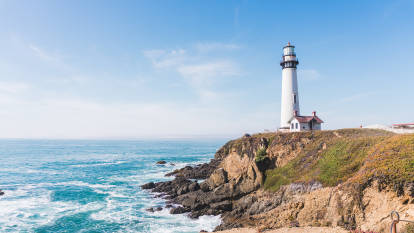Range Shut Down Over Bullet from It Allegedly Hits Home
Rare Injunction Shuts Down Pistol Range until Safety Improvements Made
Boston attorney Jeremy Y. Weltman says neither he nor his clients are anti-Second Amendment zealots.
The North Attleboro residents he represents have no interest in seeing the outdoor pistol firing range at the nearby Angle Tree Stone Rod & Gun Club shut down for good, the Ruberto, Israel & Weiner lawyer insists.
For years, they merely have made what they believe is a reasonable request of the club: Keep your patrons' bullets on your property and off ours, Weltman says.
Now, a Bristol Superior Court judge has agreed.
As the result of a preliminary injunction issued on Sept. 2, Angle Tree will have to install “appropriate safety mechanisms that ensure all fired bullets remain within the confines of Angle Tree's property.”
Also part of the injunction is the forced cancellation of a competition, the “Outdoor 1800 Pistol Matches,” which had been scheduled to take place on Angle Tree's outdoor range on Sept. 26.
Chris Drive residents Ronald Cloutier and Christine White, the original plaintiffs in the case, initially filed suit against the club in August 2017, nearly two years after a full-metal-jacketed bullet from a .45-caliber weapon came through their bedroom window.
Cloutier and White believe that the bullet, which they awakened to find resting on their bedroom floor on Nov. 22, 2015, had been fired the day before during a “bowling pin shoot” at Angle Tree's pistol range a half-mile away.
Cloutier and White would eventually learn that the incident was not an isolated one. As noted in their complaint, they were able to find police reports documenting at least five incidents of stray bullets striking homes in the “surface danger zone,” or SDZ. Two other couples have since joined the case as co-plaintiffs.
Throughout the litigation, the club's position has been that the bullets are coming from elsewhere.
“Angle Tree denies, and no other credible evidence suggests that bullets fired from the club property as opposed to some other locations are landing outside the club property and/or have hit houses,” the club wrote in its opposition to the plaintiffs' recent motion for injunctive relief. “Rather, shootings have been determined to be occurring in areas not on Angle Tree property or under Angle Tree's control.”
The plaintiffs' complaint chronicles the months Cloutier and White spent trying to mediate their issues with the club informally, at times seeking the help of the North Attleboro Police Department or Town Council.
But upon learning that Angle Tree was planning yet another bowling pin shoot that might again send bullets careening into the neighborhood, the plaintiffs rushed into court in August 2017 to request emergency relief.
However, a judge initially concluded that the plaintiffs had yet to demonstrate a likelihood of success on the merits, as they had not shown that the projectile found in their home in 2015 had come from the defendant's property.
Enter John Nixon of Athena Research & Consulting, a highly credentialed ballistics and shooting incident reconstruction expert, who conducted an independent investigation and concluded that the damage to the plaintiffs' home “is almost certainly due to … a strike by projectiles originating from the Angle Tree Club ranges.”
The U.S. Department of Energy, Office of Health, Safety and Security has issued a “Range Design Criteria Manual,” outlining the minimum steps owners of ranges should take to make them safe, which Angle Tree failed to meet, according to Weltman.
Specifically, Nixon found that the only thing standing between the pistol range and the plaintiffs' homes was an earthen berm or backstop at the end of the firing range and a row of adjustable overhead “eyebrows” at the firing lane. The backstop is lower on the left side, facing the plaintiffs' homes.
Through computer trajectory modeling, Nixon demonstrated that a .45-caliber bullet fired from Angle Tree's pistol range could “easily clear the backstop” either to the sides or over the top and reach the plaintiffs' homes.
Moreover, both the bowling pin competition that started the plaintiffs' problems and the imminent “2021 Outdoor 1800 Pistol Matches” were timed competitions, which encourage “haste and less accurate shooting,” according to Nixon.
With the benefit of Nixon's opinion, a preliminary injunction should issue, Judge Raffi N. Yessayan concluded. That ruling is no small feat. In his research, Weltman found only one other Massachusetts case, Norton v. Scituate Rod and Gun Club in 2009, in which a judge had ordered a cease fire at a gun range.
Judges may generally find it difficult to shut down a business or some significant portion of it, and that is especially true in circumstances that vaguely implicate rights guaranteed by the Second Amendment, Weltman surmises.
Now that Yessayan has issued his ruling, Weltman hopes the club will lay down its arms, litigiously speaking, and instead spend its money on the needed improvements to make the range safe. Nixon estimated that could be done for under $100,000, a sum that the club's litigation expenses have probably eclipsed at this point, Weltman notes.
The attorney for the club and its owners, Eric S. Goldman of Anderson, Goldman, Tobin & Pasciuccio in Boston, says his clients are “disappointed” but understand Yessayan's order.
While he would not completely rule out an appeal, Goldman says his best guess is his clients will “make every effort to improve the club in compliance with the court's order and make sure bullets are not leaving the confines.”
These cases are very difficult to defend. Few clubs can afford the experts necessary to successfully defend them.
